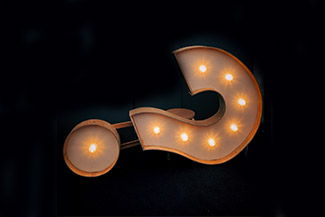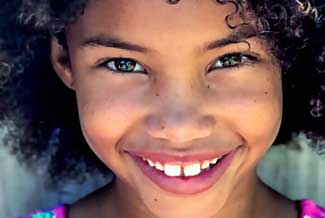
NaturalVue Multifocal Lenses for Myopia Management
Myopia (nearsightedness) has reached pandemic proportions, with nearly a third of the world’s population nearsighted. Myopic children cannot see distance clearly, and their vision typically worsens with age, exposing them to a lifetime of elevated risk of blindness and other serious ocular diseases.
Myopia occurs when the shape of the eye causes light rays entering the eye to bend incorrectly. This leads to blurred vision when viewing objects that are far away. Most myopic children are diagnosed between ages 3 to 12, according to the American Optometric Association.
Once a child becomes myopic, the condition generally worsens as they get older. While glasses and contact lenses provide clear distance vision, they don’t cure myopia. They only relieve the symptoms.
Why Is Myopia Problematic?
Myopia can negatively impact your child’s learning, athletics and overall school performance. Additionally, having myopia as a child can significantly raise the risk of developing serious ocular complications such as glaucoma, cataracts and retinal detachment in adulthood.
Is your child at risk?
Some factors that increase a child’s risk of becoming myopic include:
- Race (Asians are more prone to myopia)
- Family history (one or both parents are myopic)
- Spending less than 2 hours per day outdoors
- Excessive time spent indoors reading, looking at a screen, or doing other close-work
How To Reduce The Risk of Myopia
To reduce the risk of your child developing myopia, increase their outdoor playtime and reduce their amount of near work.
It is important to have your child’s eyes tested by an eye doctor before they start school, as the eye doctor will be able to provide a reliable indication of their future risk of developing myopia.
If your child is already found to be myopic, their eye doctor will be able to discuss all the myopia management options available.
NaturalVue For Myopia Management
While regular soft contact lenses can provide clear distance vision, they don’t slow or halt the progression of myopia.
Studies have found that children who wear multifocal contact lenses have significantly slower myopia progression as compared to those who wear regular contact lenses. NaturalVue Multifocal is one brand of multifocal lenses that offers clear and comfortable vision while slowing myopia progression.
In fact, a study published in Eye and Contact Lens Journal: Science and Clinical Practice found that children who wore NaturalVue Multifocal contact lenses for 5 years experienced great results with a minimal progression of refractive error.
If your child is myopic or you are concerned they might become myopic, contact Mill Creek Vision to schedule an appointment. Our effective myopia management methods can help slow down your child’s myopia so that they can enjoy clear vision and radically limit their risk of serious eye disease later in life.
Our practice serves patients from Mill Creek, , , and , Washington and surrounding communities.








